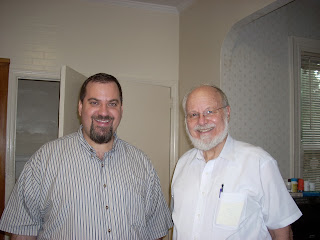V'ten Tal U'matar, Thanksgivikkah, and the slippage of the Hebrew calendar
 The unusual juxtaposition of Chanukah and American Thanksgiving got a lot of attention this year, and many
The unusual juxtaposition of Chanukah and American Thanksgiving got a lot of attention this year, and many people excitedly repeated the statistic that this won't happen again for another almost 80,000 years.
What many people are unaware of, though, is the reason for this. It's not because of random coincidence. Rather, it's because of the slight "slippage" of the Jewish calendar relative to the solar year. The Jewish calendar is very slowly getting out of sync with the seasons.
At the current rate, it'll take around 40 millennia for the holidays to end up in the opposite season from where they are now, and around 80 millennia to come back to their appropriate seasons. So in around 40,000 years, we'll be celebrating Pesach in the Autumn, and Sukkot in the spring. Tisha B'Av will be a marvelously short fast day, ending with an early sunset, and Shavuot will be associated with Christmas in popular culture.
Thus far, most of our holidays and rituals have continued with this being just an interesting curiosity. After all, the fixed Jewish calendar is less than 2,000 years old, perhaps much younger, depending on who you ask. Before that, the mechanism for keeping on seasonal track required a bet din to establish a leap year when needed. A millennium or two isn't enough to throw us seriously off track.
However, there is one, (and only one), day of the year where this slippage is actually visible in Jewish ritual. That day was last week, December 5th, the first full day day we started reciting V'ten Tal U'matar Livracha outside of Israel (we actually start at Maariv of December 4th). Halacha, following a practice established in Babylonia, states that we should start inserting this prayer into the Amidah 60 days after the Autumnal Equinox.
The Equinox this year was September 22nd, so technically, that should have been November 21st. However, due to seasonal slippage in the Julian calendar, Pope Gregory introduced the Gregorian calendar some 450 years ago, which reset the date of the equinox. Jews, however, simply saw that an adjustment of around 10 days had occurred (that first year of the new calendar, Pope Gregory removed 10 days from October for re-alignment), and ignoring the reason for the new calendar's introduction, moved the annual initiation of V'ten Tal U'Matar 10 days later into early December.
So we have an odd situation: A Jewish ritual timed for the agricultural cycle of Babylonia becomes the norm for the rest of the Jewish world (excepting Israel), and that ritual is, unusually, relative to a point in the solar cycle, rather than the Jewish calendar, AND because of over-reliance on the Julian calendar to identify that solar event, the ritual gets pushed even further away from it upon the initiation of a new, more accurate, solar calendar.
Those oddities aside, we do recognize the slippage of the Jewish calendar against the solar year, and against the more solarically accurate Gregorian calendar. This results in the slow advancement of the date we start saying V'ten Tal U'matar. A few hundred years ago, we started on December 2nd. Now we start on December 5th. In the year 2100, that will change to the 6th. This happens every 231 years.
Of course, there's another factor to consider. While we start reciting V'ten Tal U'matar on a date of the secular calendar, we stop at Pesach time. So in approximately the year 30000, we will start saying the prayer in early April and we will stop at Pesach time.... in November or December. We will then start reciting just "V'ten Bracha", the spring prayer, just in time for winter.
Or course, someone will presumably (hopefully!) fix the Jewish calendar by then, so it's highly unlikely we'll really have to wait 80,000 years for another Thanksgivikkah.
And if either Chanukah or Thanksgiving still exists in 80,000 years, I'm betting on Chanukah.
Related links:
Joel M Hoffman: How the Secular Date of Dec. 5 Made Its Way into the Jewish Calendar
Daniel J. Lasker - "December 6 Is Coming: Get Out the Umbrellas"

I'm betting on neither (Chanukah or Thanksgiving) being around 80,000 years from now. Why set up this false binary choice anyway?
ReplyDeleteI am pretty fascinated by the point about the Julian calendar though. It just shows how silly and arbitrary these "timeless" rituals are.
That last line was partially tongue in cheek. Let's see if Judaism truly still exists in any form 80,000 years from now. (Not that we'll see, we'll be long dead, of course)
Delete